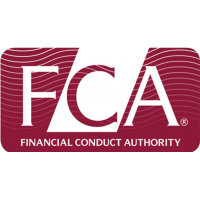
Fines by the FCA have hit record levels after investigations into the alleged rigging of LIBOR interest rate benchmarks and the foreign exchange market.
Financial services have been hit with a total of £1.39bn in penalties since April, more than three times the £425m levied in the whole of the 2013-2014 financial year, which at the time was a new high.
Almost all of this year’s total is attributed to the £1.1bn five banks paid to the FCA last month to settle allegations that they attempted to rig forex, one of the biggest financial markets in the world.
The fines were part of more than $4bn in penalties paid by seven banks to US, UK and Swiss authorities.
Perhaps unsurprisingly, there have been disgruntled noises from the City, with one criticism being that such large fines weigh on banks’ capital, the Financial Times reported.
The FCA fines have increased not only because of benchmark-rigging probes but also because a new penalty regime that allowed for higher fines for wrongdoing found since 2010 is now taking effect.
Georgina Philippou, an FCA director of enforcement strategy, said at the regulator’s biennial conference last week there were plans for the watchdog to review how well the new regime was working.
“We believe that we now have enough cases to pause and take stock and we plan to start a review of our penalty policy in the next financial year,” she said, according to the Financial Times.
The current regime gives the FCA the discretion to bump up fines to act as a deterrent. The watchdog explicitly increased fines on banks in the forex probe because they had not learnt key lessons from the earlier and similar LIBOR investigation.
The fines collected from financial services companies for misconduct go to the Treasury, once the FCA’s enforcement costs are deducted. In 2014, £1.43bn went to the Treasury in this way, up from £474m in 2013, according to separate FCA statistics.
Chancellor George Osborne said last week that the fines from the forex investigation would be used as a windfall payment for the National Health Service.
LIBOR fines, meanwhile, which have topped more than £500m in the UK, would be used to pay for military services and related charities.















